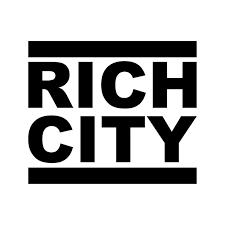Fiscal Sponsorship
Does Urban Tilth fiscally sponsor RICH CITY Rides non-profit?
- Yes, Urban Tilth has been providing fiscal sponsorship to Rich City Rides non-profit since 2014..
- Fiscal sponsorship is a financial and legal arrangement in which a nonprofit organization (the fiscal sponsor) provides support and oversight to another organization or “project” that does not have its own tax-exempt status. This allows the sponsored organization to receive tax-deductible donations and grants and access the fiscal sponsor’s administrative services and expertise.
The Rich City Project
What is the Rich City Project?
- The heart of the Rich City Project is establishing a holistic and comprehensive approach to realizing self-determination for Richmond’s Black, Brown, and Indigenous residents.
- The Rich City Project seeks to take privately owned properties off the speculative market and hold, maintain, and develop them for the community. These properties will then be used to secure community-owned assets that will prioritize the health and wellness of our city’s people who have been most affected by displacement, historic redlining, criminalization, and divestment.
- The RICH CITY Project includes the development of a Black Wellness Center (1500 MacDonald Ave), a Tech Lab (1428 MacDonald Ave), and the Rich City Wellness Hub (1525 Ohio Ave).
- After almost a decade of leasing office space at 1500 MacDonald units A and C, we developed a strong relationship with the former owner who embraced our vision for these properties and sold the portfolio of properties to our organization to fulfill this vision.
Which buildings were purchased?
- 1500 MacDonald Ave, 262 15th Street, 1428 MacDonald Ave, and 1525 Ohio Ave.
How were the properties purchased?
-
In order to fund the $4.3 million dollar purchase price for the properties, the fiscal sponsored project Rich City Rides provided $2 million in cash raised through its capital campaign and Urban Tilth made a temporary loan to Rich City Rides fiscally sponsored project for $2.3 million.
-
This loan is being repaid by Rich City Rides over the course of the next year using additional funds secured through the ongoing Rich City Project Capital Campaign.
Where did the funds for the property purchases come from?
Over 100 individual private donors contributed to the RICH CITY capital campaign, with over 95% raised from private foundations. No public money was used in the RICH CITY Project.
Were there any public funds used in the Rich City Project?
-
No, public funds (city, state or federal) were used for the purchase of these properties.
Rich City Rides Bike and Skate Coop Shop
Were there any public funds used in the Rich City Project?
- No, public funds (city, state or federal) were used for the purchase of these properties.
Who owned the Rich City Rides Bike and Skate Co-op?
- The Coop Bike Shop was a California Cooperative Corporation, with ownership shared among two individuals: 1) Najari Smith, 2) Roshni Taye McGee
- The Coop was looking for additional members to become worker-owners and fill the spots left vacant by worker owners who left the coop in previous years (Josue Hernandez, Rafael Fernandez, and Michael Malin)
How was the Cooperative Bike Shop funded and operated?
- All staff, inventory, and overhead expenses for the Coop Bike Shop were paid for from the proceeds of bike shop sales using the bike shop accounts.
- The Cooperative Bike Shop had its own accountant, checking account, and payroll system, and completed its own taxes.
- The co-owners of the bike shop were responsible for completing all operations tasks.
What became of the bikes donated to the bike shop?
Bikes dropped off for donation at the Rich City Rides Bike and Skate Co-op shop were given to Rich City Rides non-profit, repaired, and given away through the non-profit “Everybody Rides” bike program that has redistributed over 3,500 bikes to community members to date.

